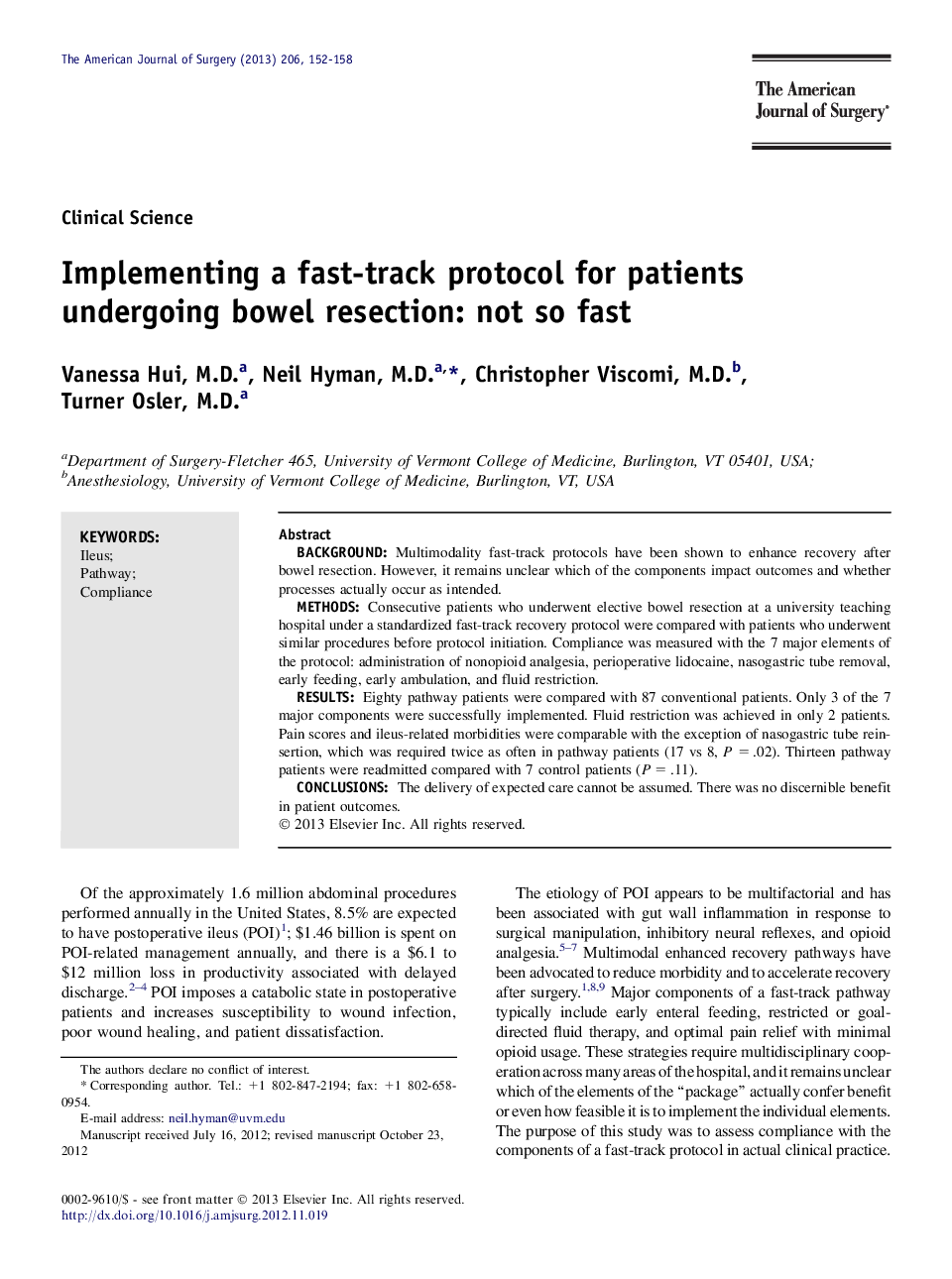| Article ID | Journal | Published Year | Pages | File Type |
|---|---|---|---|---|
| 4279162 | The American Journal of Surgery | 2013 | 7 Pages |
BackgroundMultimodality fast-track protocols have been shown to enhance recovery after bowel resection. However, it remains unclear which of the components impact outcomes and whether processes actually occur as intended.MethodsConsecutive patients who underwent elective bowel resection at a university teaching hospital under a standardized fast-track recovery protocol were compared with patients who underwent similar procedures before protocol initiation. Compliance was measured with the 7 major elements of the protocol: administration of nonopioid analgesia, perioperative lidocaine, nasogastric tube removal, early feeding, early ambulation, and fluid restriction.ResultsEighty pathway patients were compared with 87 conventional patients. Only 3 of the 7 major components were successfully implemented. Fluid restriction was achieved in only 2 patients. Pain scores and ileus-related morbidities were comparable with the exception of nasogastric tube reinsertion, which was required twice as often in pathway patients (17 vs 8, P = .02). Thirteen pathway patients were readmitted compared with 7 control patients (P = .11).ConclusionsThe delivery of expected care cannot be assumed. There was no discernible benefit in patient outcomes.
